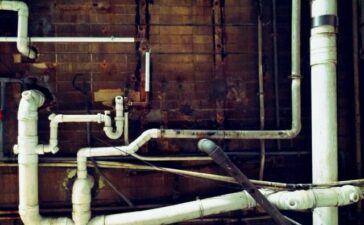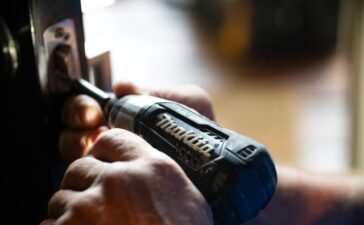When running a business, you will utilize energy to make things work. This also means that tons of gas would be acquired to run electricity and power utility sources. Building an enterprise takes up a significant amount of energy.
Later, you might be shocked at how much energy you spent in the past couple of weeks. You can wisely manage the energy that you use with an energy audit.
Auditing your business energy translates to getting the detailed cost of how much each utility or appliance in your property is used. You can Click here to find out how to improve your lighting systems, update tools and equipment, and even get energy-efficient appliances.
Audit Your Utilities for Better Cost-Saving Approach to Your Business Energy
There are several means for you to reduce energy consumption in your business setting, indeed.
Almost everything runs on gas and electricity – from computers, lighting systems, appliances, and work equipment. However, using all these means your enterprise takes up a significant amount of energy.
With so much to think about, you might ignore the costs of your consumption. There is also another way to do so – that is by having an energy audit. Not many individuals opt to get an energy audit because they think it is nothing but another expense on their end. Little do they know that an energy audit is highly beneficial for any business that exists.
What Is An Energy Audit?
An energy audit is a contractor’s process for a residential or commercial setting. Its primary function is to find out such a setting’s energy consumption and possible efficiency. Energy efficiency is where you use less energy to do the same things or tasks with whatever you utilize. An audit will tell you how much gas, electricity, and energy you take up over a duration or schedule.
That is not all an energy audit does. It will also show you relevant information and a star rating. What you can do with this information is figure out what to cut or reduce so you can lessen your energy take up. You have all the time and liberty in the world to transition to a better and more efficient energy system. You can also switch from your current energy provider to a new one. However, it would be wise to get an energy audit before you undertake any of these endeavours.
The Types Of Energy Audit
Do you think that there is only one type of energy audit? Then you better think again! There are currently two types of energy audits. What audit you need depends on a few factors.
- Preliminary audit
Think of a preliminary audit as some sort of data-gathering test or exercise. The result is an initial assessment or analysis. What happens is that an auditor will conduct this type of audit through a walk-through inspection. They will also utilize any available data and any diagnostic instruments they have at the moment.
- Detailed audit
A detailed audit is one that a professional auditor will handle. They will utilize a complete set of instruments and all relevant data and information to complete it. What happens is that they will analyze, inspect and verify your energy usage, and they do so to locate any problem areas of your home or work setting. In addition, they will show and detail everything they find in a highly-detailed report. You can use the report to find any potential solutions so that you can be energy efficient once and for all.
Who Conducts One?
Not anyone can quickly get into your home or complex and mention they will conduct an energy audit. That is the responsibility of a registered energy auditor or energy advisor, and their primary role is to assess the energy efficiency of residential and commercial buildings and settings.
Let’s Talk About The Cost
Several business owners and operators choose not to have an energy audit. They believe that it is expensive and not worth their time. While an audit is not free, it is also not that expensive. However, how much you will pay for an audit depends on some factors. You must consider your location, schedule, and the conductor’s fees and other expenses. You will also take note of the scale of your business and the type of audit you wish to have.
An average energy audit will cost you at least three hundred to four hundred dollars. Now, that is quite a sum for some business owners. That is why they would rather spend the money to purchase energy-efficient tools and systems immediately without taking this step.
There is also a free audit available. However, you should expect not to know everything that it will cover. A low-cost or free audit will typically only determine your setting’s energy use. There are things that this type of audit will not tell you. It would be better for you to get a paid one if you wish to reduce energy costs completely.
When Getting One
It pays off to have a ready checklist for your auditor to look over once they arrive. But an auditor will also have one should you fail to prepare a list. Here is the checklist of things that an audit will cover:
- The lighting systems in your residential or commercial setting
- Any existing and operating electrical motors
- Any potential and unwanted air leakage in your facilities
- Insulation
- All the water heating systems you have
- Water systems
- Electronic gadgets and equipment
- Doors and windows
- Cooling systems
- And others
An auditor will go through all of these aspects in your complex or setting. It may take them some time to do so. So you have to be patient as they handle the job. How long it will take depends on their skills and the scale of your setting. But most audit jobs do not take more than a day.
In The End
It is highly recommended to have an energy audit. Not only is it highly beneficial for you and your business, but it will also let you find ways to become fully energy-efficient. You will save time, resources, and that hard-earned cash.






